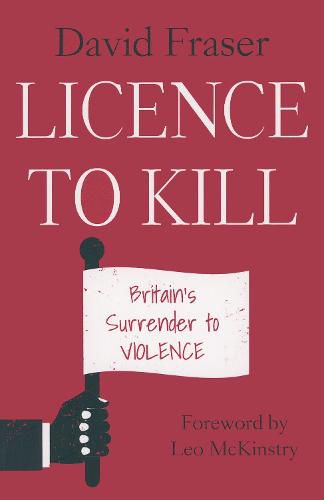Readings Newsletter
Become a Readings Member to make your shopping experience even easier.
Sign in or sign up for free!
You’re not far away from qualifying for FREE standard shipping within Australia
You’ve qualified for FREE standard shipping within Australia
The cart is loading…






This title is printed to order. This book may have been self-published. If so, we cannot guarantee the quality of the content. In the main most books will have gone through the editing process however some may not. We therefore suggest that you be aware of this before ordering this book. If in doubt check either the author or publisher’s details as we are unable to accept any returns unless they are faulty. Please contact us if you have any questions.
Based on over thirty years of research of government sentencing policy and work within the criminal justice system, David Fraser demonstrates that Britain’s increased reliance on alternatives to imprisonment has allowed violent crime to flourish. The number of life-threatening attacks has increased rapidly over the last forty years but justice officials have masked this development within a blizzard of deceptive statistics. Anti-prison groups tell the public that violent offenders can be managed in the community under supervision and that prison makes offenders worse. Contrary to this misleading propaganda, the evidence presented here informs us that criminals under probation supervision as an alternative to imprisonment commit hundreds of the most serious crimes every year, while the government’s figures - which are kept away from the public eye - make it clear that long prison sentences are our best protection against violent crime. Licence to Kill demonstrates that the death penalty was an effective deterrent to homicide but does not argue for its reintroduction. Instead, by acknowledging its effectiveness, David Fraser argues the case for a re-vamped sentencing system that is as effective as was the fear of the hangman’s noose. By providing readers with an alternative perspective, he invites them to consider the idea of a new criminal sentencing framework.
$9.00 standard shipping within Australia
FREE standard shipping within Australia for orders over $100.00
Express & International shipping calculated at checkout
This title is printed to order. This book may have been self-published. If so, we cannot guarantee the quality of the content. In the main most books will have gone through the editing process however some may not. We therefore suggest that you be aware of this before ordering this book. If in doubt check either the author or publisher’s details as we are unable to accept any returns unless they are faulty. Please contact us if you have any questions.
Based on over thirty years of research of government sentencing policy and work within the criminal justice system, David Fraser demonstrates that Britain’s increased reliance on alternatives to imprisonment has allowed violent crime to flourish. The number of life-threatening attacks has increased rapidly over the last forty years but justice officials have masked this development within a blizzard of deceptive statistics. Anti-prison groups tell the public that violent offenders can be managed in the community under supervision and that prison makes offenders worse. Contrary to this misleading propaganda, the evidence presented here informs us that criminals under probation supervision as an alternative to imprisonment commit hundreds of the most serious crimes every year, while the government’s figures - which are kept away from the public eye - make it clear that long prison sentences are our best protection against violent crime. Licence to Kill demonstrates that the death penalty was an effective deterrent to homicide but does not argue for its reintroduction. Instead, by acknowledging its effectiveness, David Fraser argues the case for a re-vamped sentencing system that is as effective as was the fear of the hangman’s noose. By providing readers with an alternative perspective, he invites them to consider the idea of a new criminal sentencing framework.